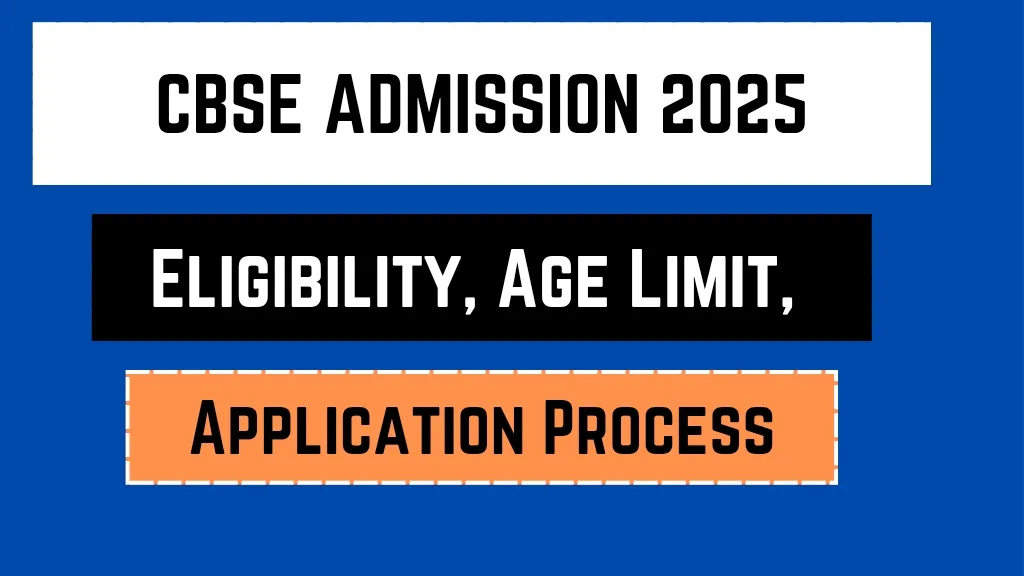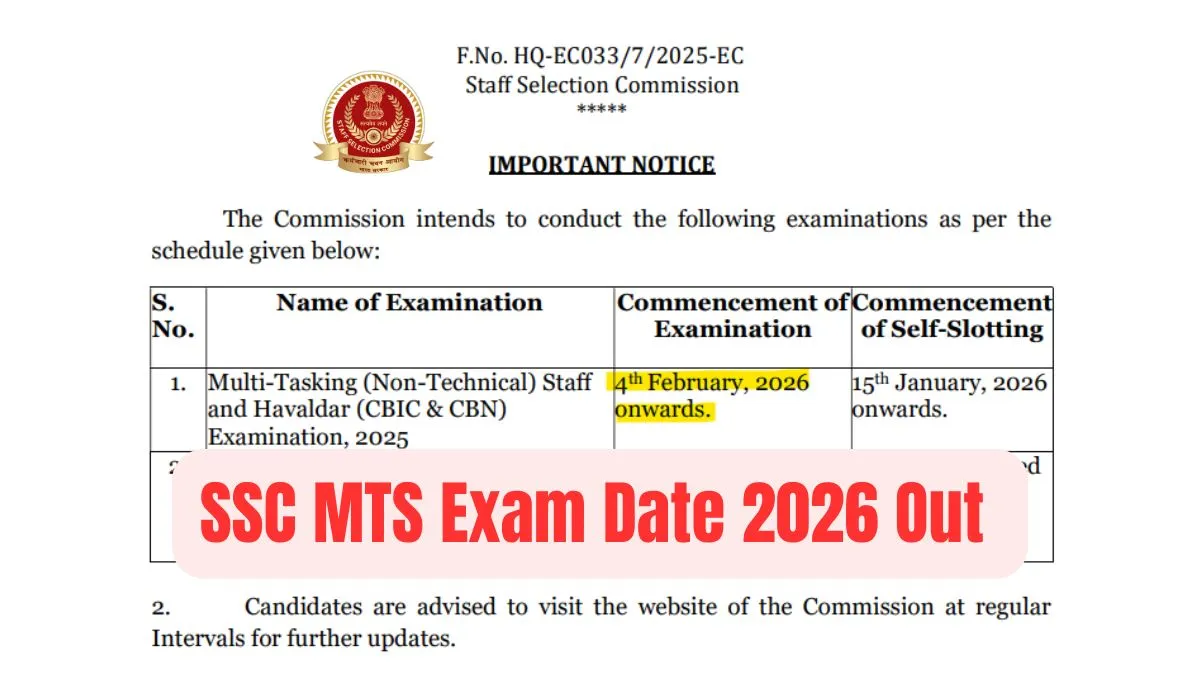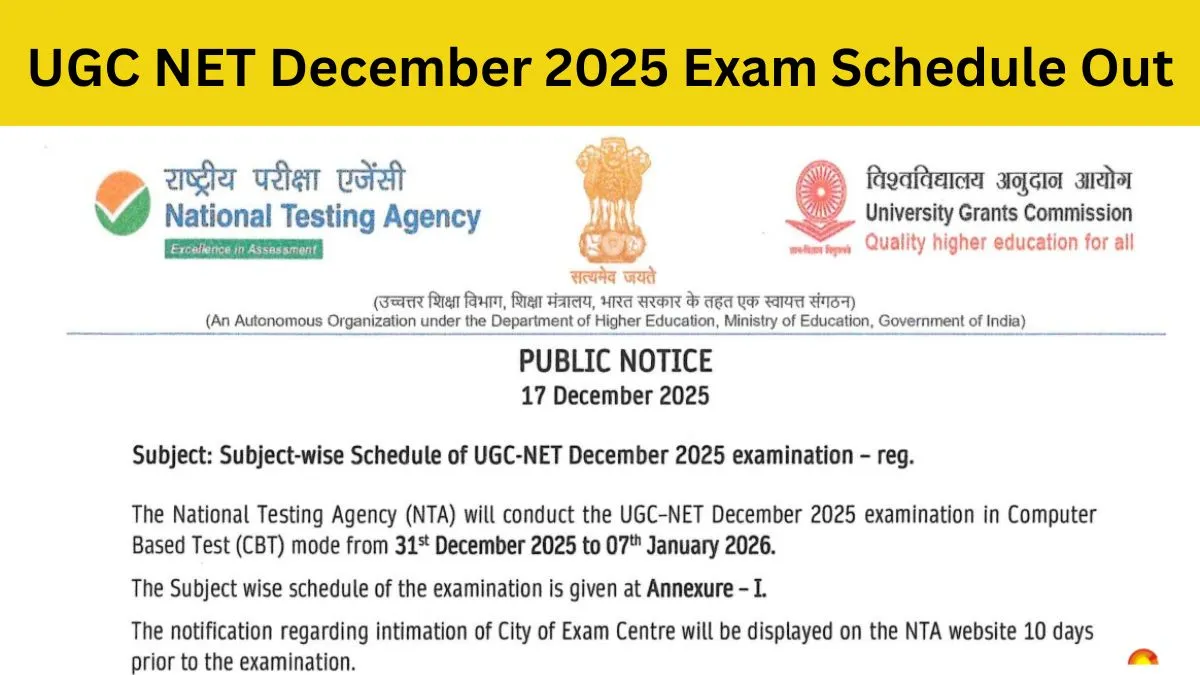The Central Board of Secondary Education (CBSE) is a prominent educational board in India, overseeing numerous schools nationwide. For the academic year 2025-26, CBSE has outlined specific eligibility criteria, age limits, and application procedures for student admissions. This article provides a comprehensive guide to assist parents and students in navigating the CBSE admission process.
Key Highlights
- Age Criteria: A child must be 6 years old for Class I as of March 31 in the academic year in which admission is sought.
- Admission to Class IX: Open to students who have passed Class VIII from a CBSE-affiliated or recognized school.
- Admission to Class X: Direct admission is not permitted; students must have completed Class IX in a CBSE-affiliated school.
- Admission to Class XI: Available to students who have passed the CBSE Class X examination or an equivalent exam from a recognized board.
- Admission to Class XII: Direct admission is not allowed; students must have completed Class XI in a CBSE-affiliated school.
- Application Process: Involves filling out the school’s admission form, providing necessary documents, and adhering to the school’s specific admission timeline.
- Special Provisions: There are relaxations and special provisions for children with special needs and for students migrating from foreign countries.
Age Criteria for Admission
The CBSE has established age criteria to ensure students are placed in age-appropriate classes, promoting effective learning. For admission to Class I, a child must be 6 years old as of March 31 of the academic year in which admission is sought. This aligns with the guidelines set by the Kendriya Vidyalaya Sangathan.
The age criteria for subsequent classes are as follows:
- Class II: 7 years but less than 9 years as of March 31.
- Class III: 8 years but less than 10 years as of March 31.
- Class IV: 9 years but less than 11 years as of March 31.
- Class V: 10 years but less than 12 years as of March 31.
- Class VI: 11 years but less than 13 years as of March 31.
- Class VII: 12 years but less than 14 years as of March 31.
- Class VIII: 13 years but less than 15 years as of March 31.
- Class IX: 14 years but less than 16 years as of March 31.
- Class X: 15 years but less than 17 years as of March 31.
These age requirements ensure that students are enrolled in classes that match their developmental stages.
Eligibility Criteria for Various Classes
CBSE has set specific eligibility criteria for admissions to different classes to maintain academic standards and ensure a smooth transition for students.
Admission to Class IX
Students seeking admission to Class IX must have successfully completed Class VIII from a school affiliated with CBSE or any other recognized board. This ensures that the student has the foundational knowledge required for the Class IX curriculum.
Admission to Class X
Direct admission to Class X is generally not permitted due to the integrated nature of the syllabus at the secondary level. However, exceptions are made under specific circumstances:
- Transfer Cases: If a student has completed a regular course of study for Class IX and has passed the Class IX examination from a recognized board other than CBSE, they can be admitted to a CBSE-affiliated school in Class X. This is applicable only if there is a transfer of the parent(s) or a shift in the family’s residence. In such cases, the student must provide the mark sheet and Transfer Certificate duly countersigned by the educational authorities of the concerned board. The school must obtain post-facto approval from CBSE within one month of the admission.
Admission to Class XI
Admission to Class XI is open to students who have passed:
- The CBSE Secondary School Examination (Class X).
- An equivalent examination conducted by any other recognized board or Indian university recognized by CBSE as equivalent to its secondary school examination.
This flexibility allows students from various educational backgrounds to pursue higher secondary education under the CBSE curriculum.
Admission to Class XII
Direct admission to Class XII is not permitted. Students must meet the following criteria:
- Completed a regular course of study for Class XI.
- Passed the Class XI examination from a CBSE-affiliated school.
Similar to Class X admissions, exceptions are made for transfer cases, provided the necessary documentation is submitted, and post-facto approval from CBSE is obtained within one month of admission.
Application Process
The application process for CBSE admissions involves several steps to ensure a thorough evaluation of each candidate.
- Obtain the Admission Form: Parents or guardians should collect the admission form from the respective school or download it from the school’s official website, if available.
- Fill in the Details: Parents or guardians must accurately fill in the admission form with details such as the student’s name, date of birth, address, parents’ details, and previous academic records.
- Attach Required Documents: The application must be accompanied by the following essential documents:
- Birth certificate (for age verification)
- Transfer Certificate (if applicable)
- Report card from the previous school
- Address proof of parents
- Passport-size photographs of the student
- Caste certificate (if applicable)
- Submit the Application: The completed form, along with the required documents, should be submitted to the school within the specified admission period.
- Admission Test (if applicable): Some CBSE-affiliated schools may conduct an entrance test for admission, particularly for higher classes.
- Interview or Interaction: Some schools may also conduct an interaction session with the student and parents to assess the child’s suitability.
- Fee Payment: Upon selection, parents must pay the admission fee, tuition fee, and other applicable charges to confirm the admission.
- Final Confirmation: The school issues an admission confirmation letter or receipt, and the student’s name is officially added to the school’s records.
Special Provisions for Admission
CBSE provides certain relaxations and special admission provisions for:
- Children with Special Needs (CWSN): CBSE-affiliated schools are required to follow inclusive education policies and provide necessary accommodations, such as additional time in exams or access to assistive devices.
- International Transfers: Students migrating from foreign countries may be admitted based on equivalency certificates issued by CBSE or other recognized authorities.
- Government Employees’ Transfers: Children of government employees frequently transferred across cities may receive priority admission in Kendriya Vidyalayas and certain CBSE schools.
Important Dates for CBSE Admission 2025
The admission process for CBSE schools typically follows this timeline:
- Admission Notification: Usually released between December 2024 and January 2025.
- Application Start Date: January 2025 (varies by school).
- Last Date for Submission: March or April 2025, depending on the school.
- Entrance Test/Interaction (if applicable): March–April 2025.
- Final List of Selected Students: April–May 2025.
- Commencement of Classes: April–June 2025 (varies by region and school).
How to Find a CBSE-Affiliated School?
Parents can find CBSE-affiliated schools using the following methods:
- CBSE Official Website: The board provides a list of affiliated schools at cbse.gov.in.
- School Websites: Most CBSE schools have official websites listing admission details, eligibility, and contact information.
- Word of Mouth & Reviews: Parents can seek recommendations from other parents or check online reviews to assess a school’s reputation.
- School Visits: Visiting shortlisted schools can help parents understand the facilities, teaching methodologies, and environment.
Benefits of CBSE Education
CBSE offers a standardized and student-friendly curriculum with multiple advantages:
- Nationally Recognized Syllabus: CBSE is followed across India, making transfers easier for students.
- Balanced Curriculum: Focuses on academics, extracurricular activities, and life skills.
- Competitive Exam Preparation: CBSE syllabus aligns well with entrance exams like JEE and NEET.
- Continuous Comprehensive Evaluation (CCE): Encourages regular assessment over rote learning.
- Digital & Practical Learning: Many CBSE schools integrate modern teaching methods.
- Flexibility in Subject Choices: Allows students to select subjects based on their interests.
- Global Recognition: CBSE certificates are accepted worldwide for higher studies.
FAQs
1. Can I transfer my child from a State Board school to a CBSE school?
Yes, most CBSE schools accept students transferring from State Boards, provided they meet age and eligibility criteria and submit the required documents, including a Transfer Certificate and previous school report card.
2. Is there an entrance exam for CBSE school admissions?
It depends on the school. While CBSE itself does not mandate entrance tests, some private CBSE-affiliated schools may conduct admission tests, especially for higher classes.
3. Are CBSE-affiliated private schools more expensive than government schools?
Yes, private CBSE schools generally have higher fees compared to government CBSE schools like Kendriya Vidyalayas or Navodaya Vidyalayas, which are more affordable and subsidized by the government.
This guide provides a clear understanding of CBSE admissions for 2025, covering eligibility, age limits, the application process, and key details to help parents and students navigate the system smoothly.
















Is these criteria applicable for those students have passed in class 7th and graduated in class 8th in same school.
If the same student have not qualifying the proposed age criteria in tha case, is student have to repeat the class or not